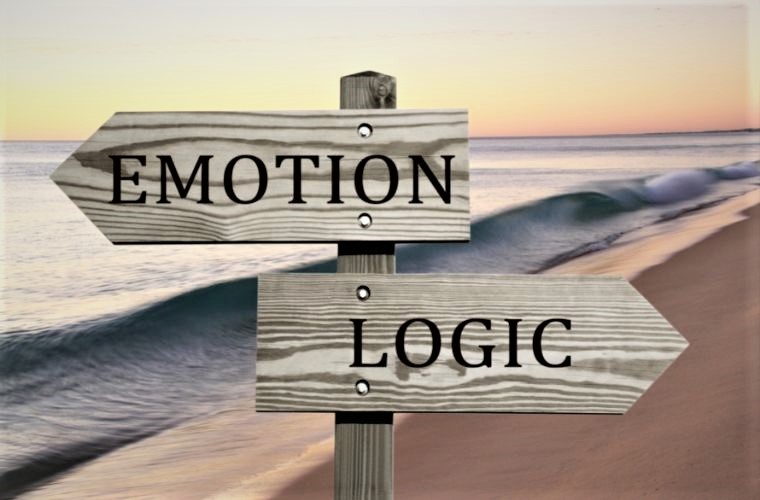Losing Your Job Hurts
There are many ways to experience trauma, and job loss is one of them. If you have been laid off, downsized, forced to take early retirement, or let go for any other reason, you know that it hurts. It’s not only about losing a job. It’s about your identity and wholeness. When you lack a sense of meaning and need a source of income, it impacts your mental and emotional health. Our recruiters at PrintLink have been supporting the packaging and print industry since 1994. We worked through the events of 9/11and then the mortgage crash of 2008/2009. We are here to support you and talk about lessons learned.
It Can Happen To Anyone
It’s unfortunate, but it happens. These days especially, people lose jobs as a result of the COVID-19 pandemic. Some employers in our industry lay off workers due to temporary shutdowns, and other companies must apply new business models. But it’s not only about the packaging and print market. In April 2020, the nation’s unemployment rate reached 14.7 percent, with 20.5 million people suddenly out of work. You are not alone for many reasons.
Fight, Flight or Freeze – You Decide
The fight-flight-freeze response is your body’s natural reaction to danger, according to psychology. In your situation, the flight can be unusual anxiety about finding a new job, the flight is about seeking a distraction, and freeze means that you become hopeless and passive. Everyone is different, but the chances are that the fear of the unknown causes the most stress, especially if you pay the bills to pay and you may have a family to support. Whether you are in a fight, flight, or freeze state, can you tell how your thoughts trigger specific emotions? The moment when you realize and accept that you cannot control everything is a huge breakthrough. From now on, you can focus on what you can control since you are on the right path.

Knowing the Five Stages of Grief
Have you heard of the concept saying that we go through five stages of grief? The five stages are denial, anger, bargaining, depression, and acceptance. It’s an approach that helps you understand where you stand while dealing with a loss or trauma. Learning and moving forward is part of the process, but it will feel like an emotional roller coaster for some time. As we said previously, try to focus on what you can control. Most of the job losses have nothing to do with you.
Acknowledge Your Emotions
“Why me,” “why now,” and many other questions may come to mind. You may be angry at your boss or whoever else you think is responsible for your situation. It’s essential to go through this stage because it helps you become aware of your own emotions, which will help you talk about your feelings. As you start honestly telling yourself how the job loss affects you, you will understand those pieces of the puzzle that you need to put together. There will be obligations and possibilities for what to do next.
Get Your Finances in Check
Your financial survival depends on having a regular income. Money is a down-to-earth need that can be a positive trigger that will push you to get out of the “freeze” mode. The first thing to do when you lose your job is to determine if you are eligible for government unemployment benefits. If you live in the U.S., individual states determine eligibility. The benefits don’t last forever, so you want to plan the next steps based on the budget to work on future success.
Relationships Matter
While trying to get your emotions in check, it’s essential to consider how it affects your personal life. Are you in a relationship or caring for loved ones? If yes, remember about the need to spend quality time with them, too. Connecting with people you trust is beneficial in lowering your anxiety. They offer a valuable perspective, ideas, and resources. Feeling comfortable and supported by someone who cares is a lifesaving experience for many.
Build Your Network
If you have not been a fan of networking, the good news is that you don’t have to attend in-person events. There are many ways to build professional relationships, and you can start by talking to family and friends. You can also join a group or speak to a career coach. From a recruiting standpoint, joining LinkedIn is an excellent start. The platform offers amazing opportunities to connect with peers and learn about employers. As a result of networking, you can get referrals and learn about new leads. Please don’t forget to return a favor while connecting with other individuals.
Do Your Research
Some say that everything happens for a reason. After you lose your job, you can now reflect on your career and reevaluate your career choice. Were you on the right path? When you start to do the research, you learn that the job market is changing fast, and those who don’t keep an eye on the changes may not discover amazing job opportunities. Would you consider a role that requires you to learn new skills? Losing employment can be a chance to find a career that offers more stability in another occupation or market segment. Learning about your industry is crucial, including researching the competition.

Sharpen the Saw
Dr. Stephen R. Covey came up with a fantastic book, “The 7 Habits of Highly Effective People.” “Sharpen the Saw” is one of the habits, and it’s about seeking continuous improvement and renewal professionally and personally. If you evaluate your skills and decide to improve, there are all kinds of options to choose from (for free or for a fee), including certifications, classes, webinars, etc. You may also consider taking advantage of self-assessments that help you learn about your interests, personality type, and aptitudes. Finally, believe it or not, interviewing is an excellent way to develop yourself as you meet new people, learn about the job market, different work cultures, and roles available. Our team is here to help you with many aspects of “sharpen the saw,” including polishing your resume and interview guidance.
Change Management Wins
We hope that we could give you some hints on how to get your emotions in check. It’s not easy, but you will find a new purpose and establish a sense of regularity again. Not only have you redefine your confidence and gain new skills, but you also train your brain to handle a wide range of challenges. You implement change and become a new you! Thank you for reading our observations, thoughts, and unsolicited advice. Get in touch with talent agents who have contacts in candidates and companies you might not even be aware of. And follow us on LinkedIn, Twitter, and Facebook. Stay tuned for more!
